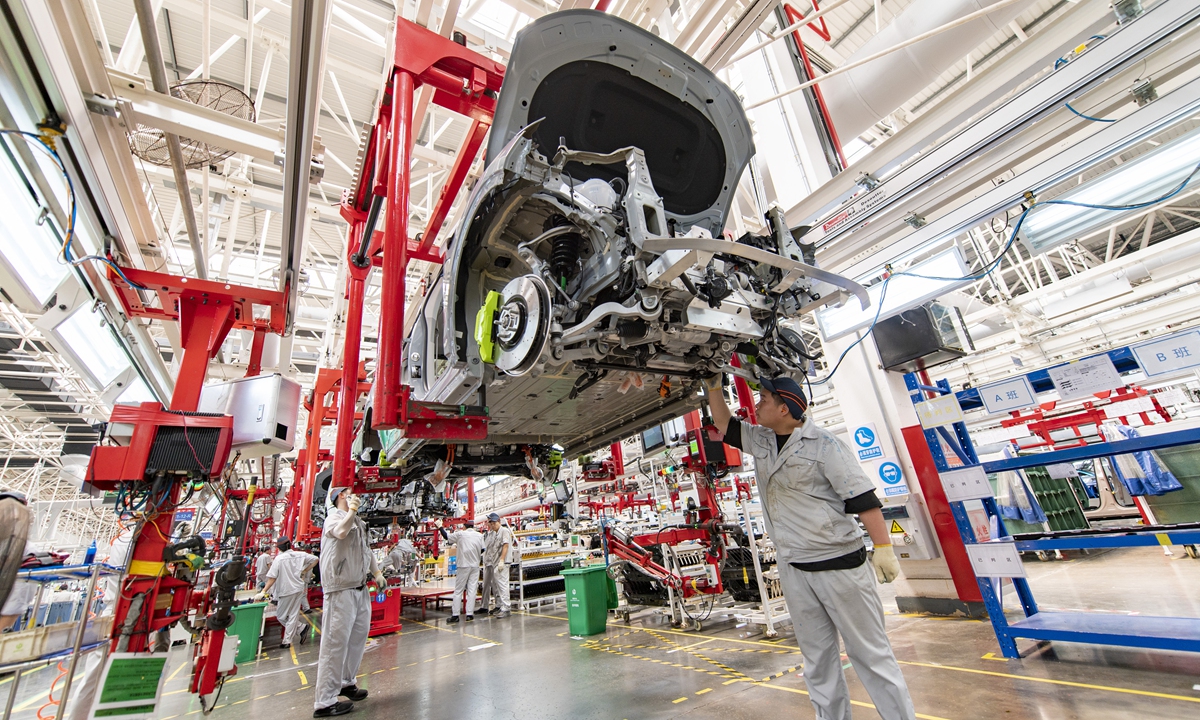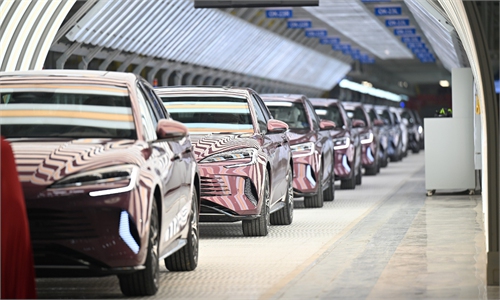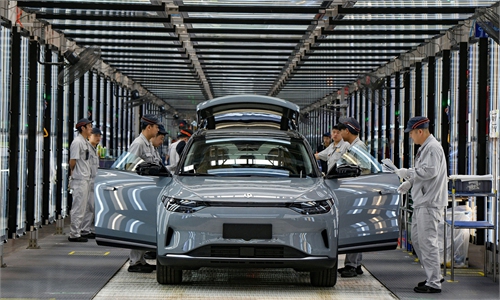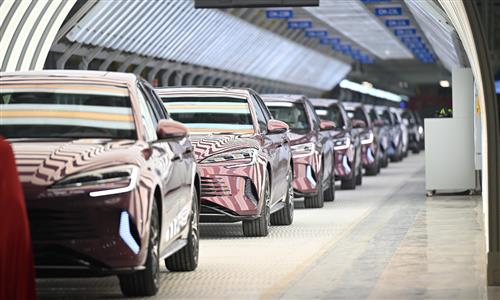Chinese EV firms gear up for global drive
Move an ‘irreversible trend,’ defying Western ‘de-risking,’ ‘de-coupling’

Workers are busy at a production line of new-energy vehicles (NEVs) in Jinhua, East China's Zhejiang Province on July 2, 2024. Photo: VCG
Chinese electric vehicle (EV) maker BYD has reportedly denied media reports that said it will postpone a decision to build a factory in Mexico until after the US election. The move showed that Chinese EV makers are gearing up their global expansion despite external noise and certain countries' so-called "industrial overcapacity" tag that maliciously targets the Chinese EV industry.BYD said that the company is continuing work to build a factory with the highest technological standards for the Mexican market, "not for the US market, nor for the export market," Bloomberg reported. Media outlets have quoted people close to the matter as saying that BYD is pausing its Mexico factory plans and waiting to see the outcome of the US presidential election in November.
"[Any] decision on the Mexico factory has nothing to do with the US presidential election. These are completely two different things," a source close to the matter told the Global Times.
In a statement sent to the Global Times, BYD said that the company is evaluating the feasibility of building a factory in Mexico, and it's also doing a comprehensive evaluation on the location of the factory. "A final decision has not been made," it said.
BYD's plan, adding to an array of Chinese EV makers' proactive moves to gear up their overseas presence, shows that those companies are on track with their globalization commitments and their strategies won't be swayed by certain countries' "de-coupling" and "de-risking" push in the guise of an overcapacity fallacy.
In addition to Mexico, BYD is building or already operating facilities in Brazil, Hungary, Turkey and Thailand. The Thailand plant of GAC Aion, a new-energy vehicle subsidiary of Guangzhou Automobile Group Co, was put into operation in July. It has a designed annual capacity of 50,000 units, which is expected to double eventually.
"China's EV factories 'going out' is an irreversible trend that is fueled by their industrial chain advantage and leading technological standard. It also contributes to the recipient countries' green transition agendas and bolsters their technological capacities," Feng Shiming, a car analyst with Menutor Consulting, told the Global Times on Wednesday.
He added that the relentless Western crackdown against China's EV industry also prompted the going global trend, especially in making investments in emerging markets like Southeast Asia, Latin America, Africa and other Belt and Road Initiative partner countries and regions where the demand for EVs is booming and the "political environment is more stable."
Certain Western countries' potential tariff hikes on Chinese EV imports would only end up backfiring, while hurting Chinese firms' confidence in investing in their markets, according to analysts.
Canada announced in August that it would impose a 100 percent tariff on imports of Chinese EVs. On Friday, the Biden administration again delayed an announcement of its final determinations for steep tariff hikes on Chinese-made EVs and other products, saying it will make a decision public in the coming days.



